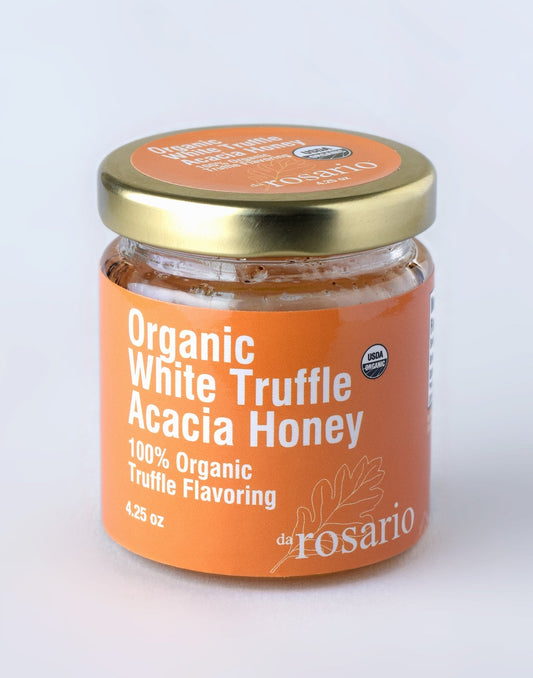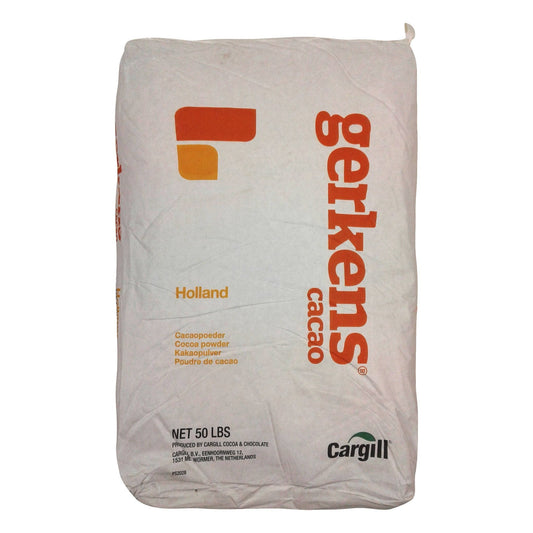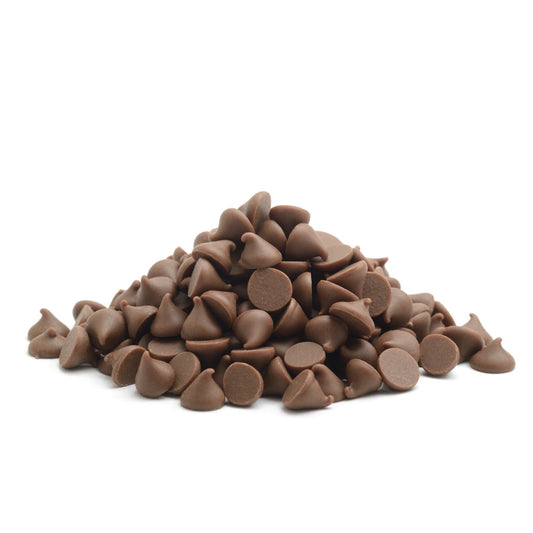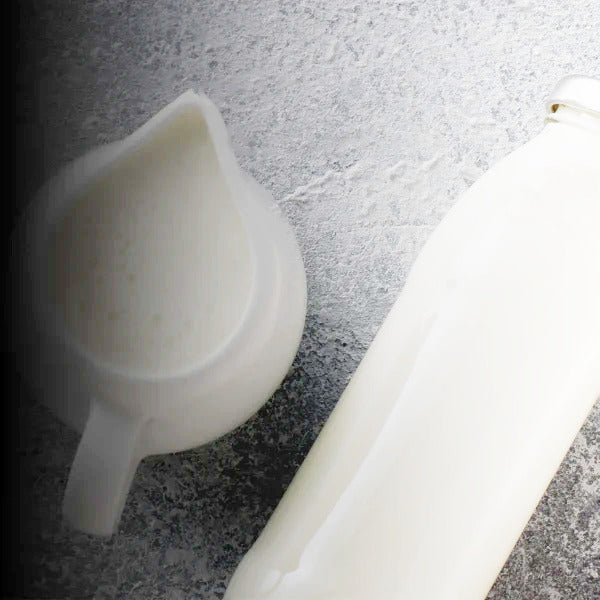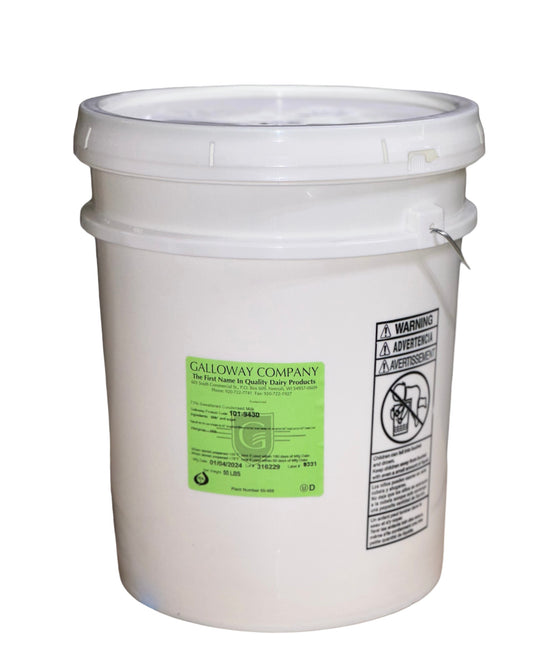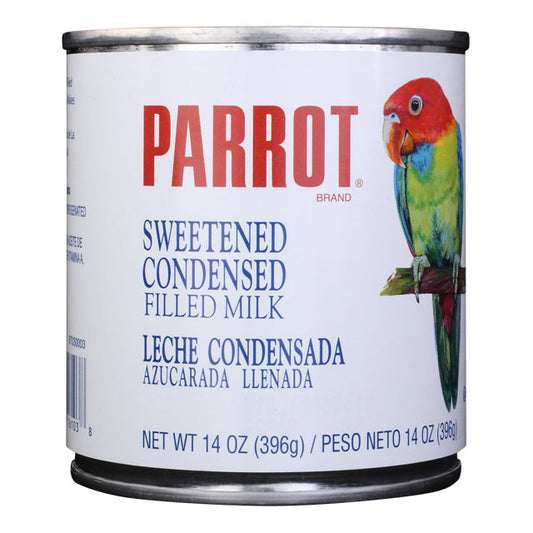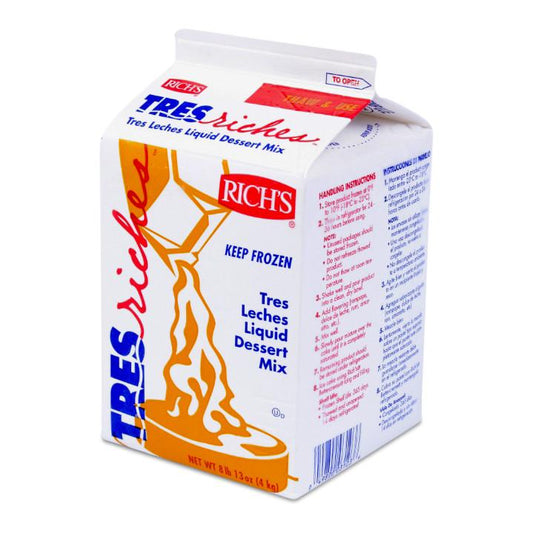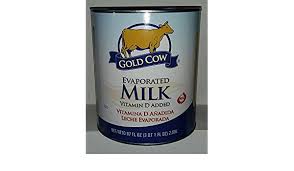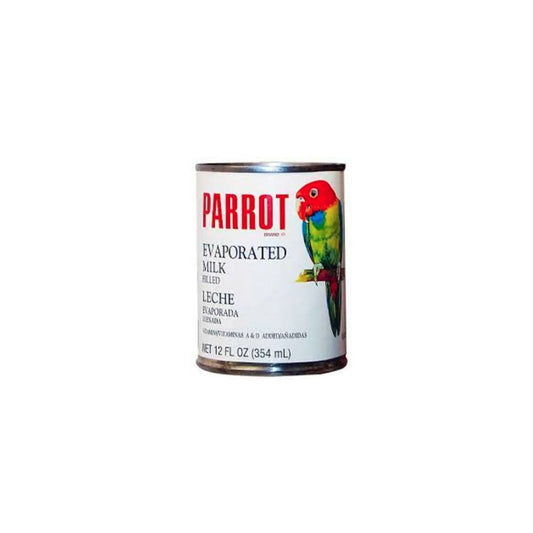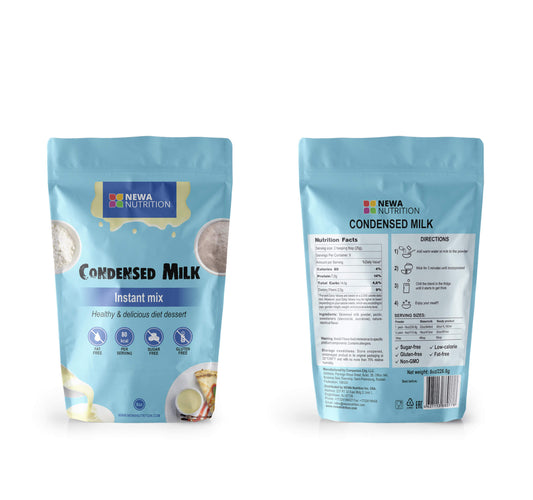-
Vendor:California Farms
Sweetened Condensed Whole Milk
*Ships on Mondays & Tuesdays onlyRegular price $161.95Regular priceUnit price per -
Vendor:Parrot
Sweetened Condensed Milk-Parrot brand 24/14oz case
Regular price $68.79Regular priceUnit price per -
Vendor:Rich's
Tres Leches Liquid Dessert Mix
Regular price $133.44Regular priceUnit price per -
-
Vendor:Parrot
Evaporated Milk Filled
Regular price $40.07 / 24/12ozRegular priceUnit price per/ 24/12ozSale price $40.07 / 24/12oz -
Vendor:NEWA
Sugar-Free Condensed Milk Mix
Regular price $16.80Regular priceUnit price per
Frequently Asked Questions
-
What's the difference between evaporated and condensed milk?
- Evaporated milk and condensed milk are both forms of concentrated milk in which about 60% of the water content has been removed. The primary difference is that condensed milk contains added sugar, making it sweet, while evaporated milk is unsweetened. This difference makes each suitable for different baking applications.
-
Can I substitute evaporated milk for condensed milk (or vice versa) in my baking recipes?
- Due to the sugar content in condensed milk, it's not a straight 1:1 swap. When substituting, adjustments to the sugar level in the recipe may be necessary. Generally, if you're substituting evaporated milk for condensed milk, you'll need to add sugar.
-
How can I store opened cans of evaporated or condensed milk?
- Once opened, it's best to transfer any unused milk to an airtight container and refrigerate. Use within 5 days for best quality. It's not advisable to store the milk in the opened can due to potential metallic taste transfer.
-
What baking applications are best suited for evaporated milk?
- Evaporated milk is best used in recipes where a creamy texture is desired without added sweetness. It's often used in custards, pie fillings, sauces, and savory dishes.
-
When should I use condensed milk in my baking?
- Condensed milk is ideal for desserts that require sweetness and a rich, creamy texture. It's a staple in recipes like fudge, caramel, dulce de leche, and certain cookie and cake recipes.
-
Can I make my own condensed or evaporated milk at home for commercial baking?
- Yes, both can be made by reducing regular milk to achieve the desired consistency. However, for commercial baking, consistency is crucial. While homemade versions can be excellent, using commercially produced products ensures consistent results in your baked goods.
-
How does the fat content in evaporated and condensed milk impact my baked goods?
- The fat content in these milk products contributes to the richness, moisture, and overall mouthfeel of baked goods. Typically, higher fat content provides a richer taste and smoother texture. Always check the fat percentage if the recipe specifies a particular type, as using a different version can alter the end result.
-
Are there dairy-free alternatives to evaporated and condensed milk for vegan baking?
- Yes, there are vegan alternatives made from plant-based milks like coconut, almond, and soy. These can have a slightly different flavor and consistency, so it's essential to test them in your specific recipes to ensure the desired outcome. Coconut milk, in particular, can be a popular substitute due to its creamy texture and natural sweetness.

